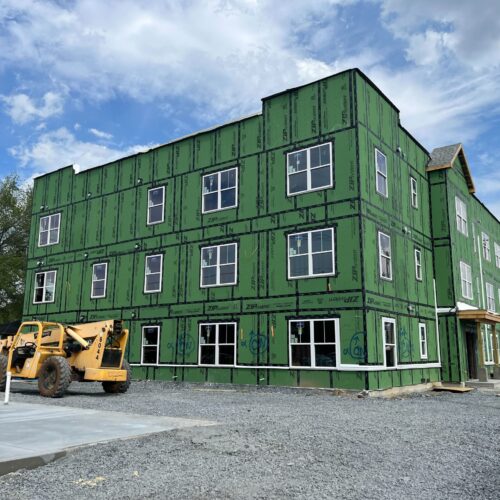This Second Chance Month, The Council of State Governments Justice Center staff asked governors from states across the country why reentry is important to them and the communities they govern. Below, find Nebraska Governor Pete Ricketts’ reasons why #ReentryMatters.
What does reentry mean to you?
Reentry involves both a responsibility to society to ensure public safety and an opportunity to help an individual successfully make a fresh start in life.
Reentry is a process. It begins when individuals first enter our corrections system, not when they are about to exit it. We assess their needs, engage them in a plan for the future, provide them opportunities for positive change through treatment and programming, and equip them with job skills and healthy relationship habits. This process gives them every opportunity to succeed upon release.
In the past decade, what progress have you seen in your state regarding reentry?
We’ve introduced a number of innovative programs to invest in people opposed to simply holding them in custody until their sentences are finished. Nebraska has invested heavily in evidence-based approaches, including risk-needs assessments, parole guidelines, post-release supervision for low-level felonies, clinical treatment, and cognitive-behavioral interventions. In 2014, Nebraska initiated the Vocational Life Skills program, which is focused strictly on reentry work. This program includes dedicated reentry specialists, social workers, mental health staff, and contracted services for vocational education.
Our cognitive programs include Moral Reconation Therapy (MRT), Dialectic Behavior Therapy (DBT), and Thinking for a Change (T4C). In addition to substance use and sex offender treatment, Nebraska is one of just a handful of states offering clinical treatment for high-risk, violent people in its correctional facilities. In January 2018, we launched the Reentry Workforce Academy, a four-week class to help participants find and keep employment. The academy is an interagency collaboration between our departments of Labor and Correctional Services along with the Board of Parole. We also offer Cornhusker State Industries (CSI) Apprenticeships. CSI is a self-supporting program that gives incarcerated men and women the opportunity to learn job skills and receive education.; it uses the revenue generated by sales of products and services to sustain the program’s operational costs as well as invest in buildings, equipment, training, certifications, and other opportunities for reentry success.
These evidence-based programs have been shown to reduce recidivism and increase positive engagement. These proven reentry approaches are bringing about a better future for the Nebraska criminal justice system.
What issue—or issues—related to reentry do you want to address in your state in 2019?
We need to have the right people on board to be able to implement our reentry programming effectively. Just in April of this year, we added merit bonuses for new and current officers to attract and retain top talent. We’ve also flexed our shifts so that our teammates in the Department of Corrections don’t have to work as much overtime. Delivering excellent reentry programming demands having exceptional leaders on the job.
Why should an average citizen in your state, not necessarily connected to any part of the criminal justice system, care about reentry?
Unfortunately, a significant percentage of crimes are committed by people who have previously been incarcerated. To make Nebraska the safest place to work, live, and raise a family, we have to reduce this number. That’s why reentry is so critical. Moreover, our reentry efforts fare the best when nonprofits and private citizens engage with the process. My hope is that Nebraskans will not only see the importance of reentry but seek out ways to contribute to it.
If you could say something directly to a person on the verge of leaving prison or jail and reentering society, what would you tell them?
As people arrive in our corrections system, I would tell them to take advantage of every learning opportunity offered during incarceration. As they leave, I would tell them, “surround yourself with trustworthy and supportive relationships. The people around you will determine the quality and future direction of your life.”
 Zero Returns to Homelessness Initiative Launches Nationally, with Pennsylvania Leading the Way
Read More
Zero Returns to Homelessness Initiative Launches Nationally, with Pennsylvania Leading the Way
Read More
 New Hampshire Continues Justice Reinvestment Effort to Improve Conditions for People Who Are High Utilizers of Criminal Justice and Behavioral Health Systems
Read More
New Hampshire Continues Justice Reinvestment Effort to Improve Conditions for People Who Are High Utilizers of Criminal Justice and Behavioral Health Systems
Read More














